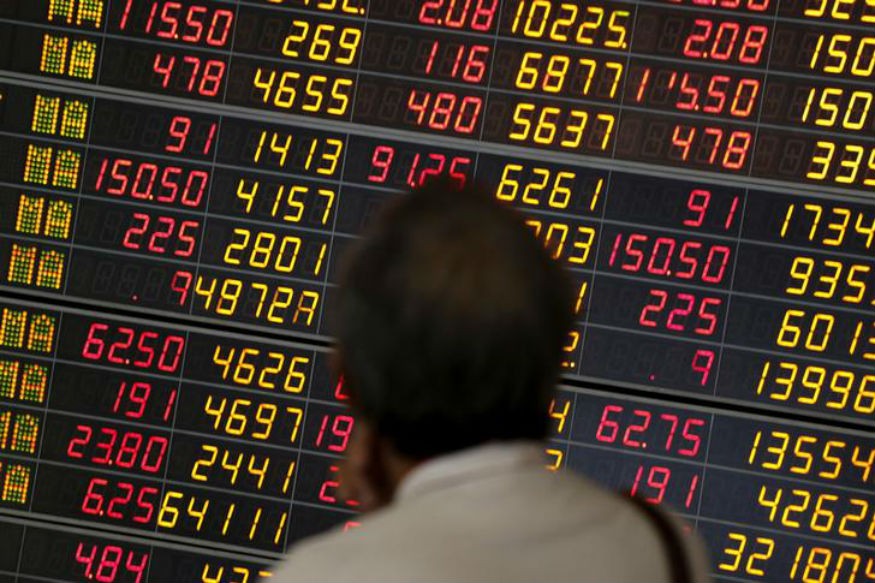
The week gone by saw markets under pressure and lose ground on four of the five trading sessions. Post announcement of budget they simply crashed on Saturday when a special trading session was held, and ended the week with big losses. BSESENSEX lost 1,877.66 points or 4.51 per cent to close at 39,735.53 points while NIFTY was down 586.40 points or 4.79 per cent to close at 11,661.85 points. The broader markets saw BSE100, BSE200 and BSE500 lose 4.96 per cent, 4.88 per cent and 4.78 per cent, respectively. BSEMIDCAP was down 4.44 per cent while BSESMALLCAP was down 3.38 per cent.
The Indian Rupee was down 2 paisa or 0.03 per cent to close at Rs 71.34 to the US Dollar. Dow Jones had a very poor showing on Friday when it lost 600 points to end the week with losses of 733.70 points or 2.53 per cent at 28,256.03 points.
January futures expired at 12,035.80 points losing 90.75 points or 0.75 per cent.
Coronavirus has assumed serious proportions in the sense that global supply chain is being disrupted with serious time implications. This is becoming a matter of concern as globally people are worried about importing from China. Further travel is being affected between countries and no one knows for sure who could the next carrier of the virus be.
This has also caused crude prices to soften significantly as world demand is expected to slow down. The nagging doubt is how long could this affect the world before it could be presumed that coronavirus is behind us and whether there is an antidote for the same.
The budget was presented on Saturday and saw mayhem in the markets post that. The one thing that could be responsible to a large extent is no change in LTCG (long term capital gains tax). There were expectations of a roll back on the same with or without modifications in timeline or holding period and streamlining capital gains holding period uniformly across asset classes. Markets have been pounded out of shape and the last hour sell-off could have got exacerbated by margin calls. Going forward one is bound to see a sharp rebound on Monday when markets resume trading and also as the ethos of the budget is better understood.
The key takeaway from this budget is the emphasis on infrastructure and here the personal rapport of the Prime Minister would come in play where he gets the sovereign funds of various countries to invest in building our infrastructure. One must also remember that infrastructure spending kickstarts the economy, provides job and has a multiplier effect of anything between 5 and 8 times.
It is for this reason that the budget has extended 100 per cent tax exemption to the interest, dividend and capital gains income on investment made in infrastructure and priority sectors before 31st March, 2024 with a minimum lock-in period of 3 years.
Further the Finance Minister through the period September to November 2019 made a number of announcements including the cut to corporate income tax rates and as a coincidence many of these announcements and press conferences happened on a Friday. One needs to add these announcements and benefits to the budget announced yesterday and then look at the same in totality.
The focus besides infrastructure concerns the farmer whose income is to be doubled in the next 4 years. Accordingly initiating measures to reach the produce from farm to table are being introduced which include adding refrigerated coaches to goods and express trains and also airlifting produce.
Thirdly to boost consumption, thrust has been given to increase disposable income in the hands of the middle class by reducing income tax rates minus the tax breaks. It is expected that the younger generation who was saving money under the compulsion of tax saving will opt for doing away with the saving and splurge. It is with this idea that the same is mooted and further the elimination of tax breaks would simplify tax returns.
The idea of bringing LIC to the markets would open up the sector further and help the government garner precious funds through divestment. It is expected that the minimum divestment of LIC could yield as much as 1 lac crs.
The government has received subscription of over Rs 22,500 against the base offer of Rs 10,000 crs and green shoe of Rs 8,000 crs for the CPSE ETF. In the process of this issue, the price of the ETF has been hammered to Rs 20.28, a loss of Rs 1.67 or 7.61% for the week. At this price many of the shares in future are trading at a discount to the cash market. A bounce when markets resume is on the cards and one needs to take note of the fact that all of these companied are Nav Ratnas and dividend paying companies.
In conclusion expect a bounce on Monday and then wait for the FM to complete the customary visits to various chambers of commerce and clarity on some of the finer points of the budget.


.jpeg)

